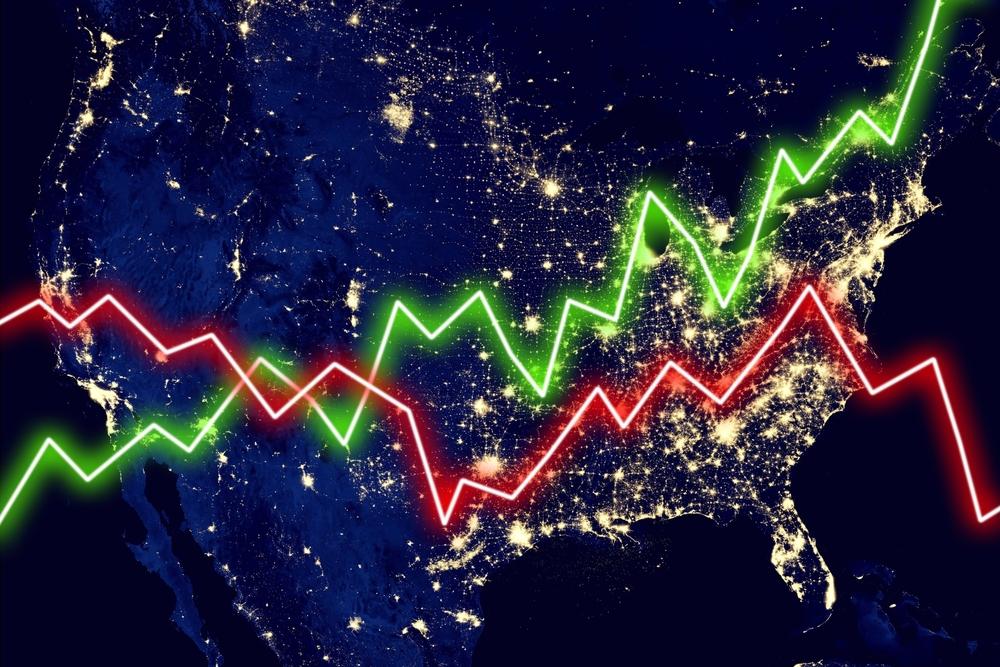On the list of things markets hate, uncertainty, political conflict, and drawn-out disruption must all rank fairly highly among the top downside risk factors. Despite that, and ahead of what may end up being a closer-fought contest than many anticipated, global equities shot up at an unreasonable rate on the eve of the US Presidential Election.
Continuing yesterday’s baffling bullishness, Eurozone equities all soared once again, spurred on by Reserve Bank of Australia stimulus. More than happy to ignore the COVID lockdown and US election warning lights, the DAX and CAC both added to yesterday’s 2% rallies, with jumps of 2.55% and 2.44% apiece on Tuesday – up to 12,088 and 4,805 respectively.
In a similar mood was the FTSE 100, which saw finance equities – NatWest, Prudential, Hargreaves Lansdown, and RSA Insurance – all rally around or in excess of 5% on Tuesday. With the feel-good factor far outweighing infection and politics reality checks, the UK’s top hitters index bounced 2.33%, to 5,786 – pretty much reversing last week’s losses.
Further, and surprisingly given the fact they’re currently voting in the man who’ll decide public policy for the next four years, US equities were the picture of calm as Tuesday trading came and went. Led by a recovery from last week’s FANMAG big tech dip, the Dow Jones rose 2.06% to 27,480 points. This fact was mirrored by the tech-heavy Nasdaq, up 1.85% as Apple, Amazon, Alphabet, Microsoft and Facebook all up around 1.5%-2% (and, lest we forget Tesla – up 5.90%).
What makes rallies of these kind so odd is that they suggest the markets have something the rest of us don’t: that being, a modicum of certainty about the global virus and political situations. Speaking on what he described as a ‘green tsunami’ across global equities, Spreadex Financial Analyst, Connor Campbell, commented:
“That [indexes] fell so fast and hard last week is undoubtedly a contributing factor to the size of Tuesday’s gains.”
“The danger for the markets – and it is a very real danger – is that they are going to wake-up with a HELL of a hangover on Wednesday if the result is anything but a decisive, and stimulus-signalling, victory for the Democrats.”
“And there is a litany of obstacles standing in the way of that outcome. We could be in for a long and protracted tallying period thanks to the sheer number of mail-in votes, one that may involve recounts.”
The likelihood of a Democrat clean sweep narrows by the minute, with many bookies now saying that the majority of punters are taking advantage of the generous odds for a Trump victory, while Spreadex themselves increased Trump’s projected college votes from 222-230, to 227-235 – roughly where he was before his victory in 2016.
With this in mind, global equities may end up taking a hammer blow to the gut if the underdog incumbent takes a second term – or even puts up enough of a fight to see the race drag out over several days. Echoing this sentiment, IG Chief Market Analyst, Chris Beauchamp, commented:
“The risk is that investors are getting ahead of themselves, given the potential for a long, drawn-out battle over the result of the US election in coming weeks should no obvious result appear by this time tomorrow morning.”
“In that case risk assets could well struggle to make much headway, even if they do manage to avoid further substantial losses similar to what we saw last week.”
“The focus on the election obscures the really important element, namely a US fiscal stimulus, since whoever emerges as the winner will need to sort out this most pressing item, before the US economy moves into an even deeper slump.”

